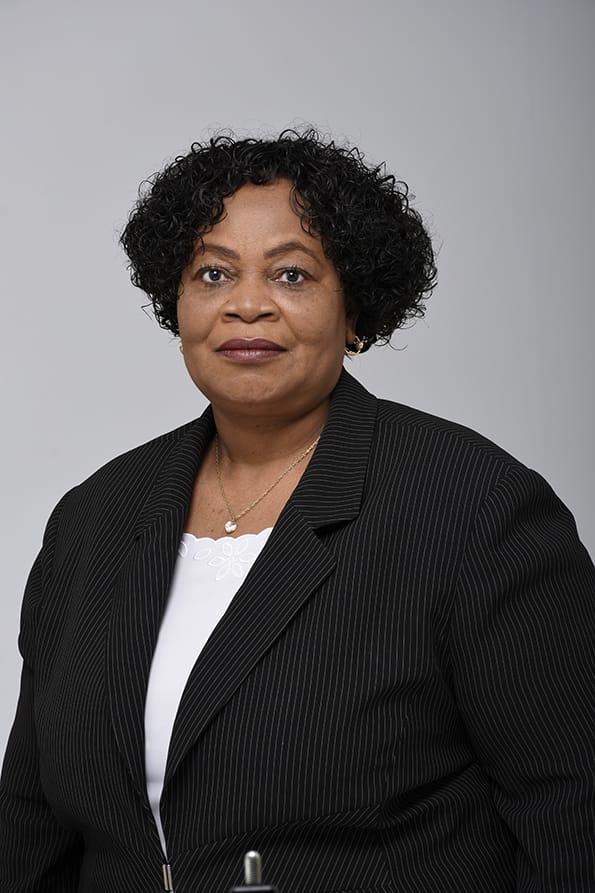|
Getting your Trinity Audio player ready…
|
MOMBASA, KENYA – There are vast opportunities for women and girls in the science, technology, engineering, and mathematics (STEM) subjects, Prof Alsácia Atanásio of Mozambique has said.
The scientist revealed this in an interview on the sidelines of the ongoing genome editing strategic workshop in Mombasa, Kenya, that is organised by the African Union Development Agency (AUDA-NEPAD).
“I encourage women and girls to take up STEM subjects. Having women in STEM, particularly in Africa, will influence the development of key economic sectors like agriculture. Women constitute the greatest source of labour in agriculture. With that in mind, the sector will develop if we have more women experts in STEM. It would be easy as well to implement biotechnologies like genome editing,” Prof Atanásio said.
There are many feathers in her cap of achievements. She obtained her Ph.D. in Veterinary Science awarded by the Medical University of Southern Africa (MEDUNSA), South Africa, in 2000, and holds a Post-Doctorate from the Federal University of Bahia (UFBA), Brazil, in 2018.
Currently, she is the Chairman of the Board of Directors of the Hope Mozambique Humanitarian Association since March 2023. In addition, she is the National Consultant for the Women’s Rights Online Project implemented by SIITRI with support from the World Wide Web Foundation from 2015 to 2017 and is a Member of the WRO Network.
Prof Alsácia Atanásio is the Director of the National Center for Biotechnology and Biosciences(CNBB) since 2015. CNBB is the leading institution in Mozambique for the Genome Editing ( GEd) Initiative implemented by the AUDA-NEPAD Science, Technology, and Innovation (STI) Centre of Excellence.
She was the Executive Director of the National Research Fund from 2006 to 2013 and was the Executive Secretary of the Technical Council for Agricultural Research (CTIA)/Ministry of Agriculture and Rural Development ( MADER) from 2003 to 2005.
She was a Researcher as a Parasitologist at the National Veterinary Research Institute (INIVE) from 1989 to 2002 and was a UNCTAD National Consultant in 2012.
Awards and Distinctions:
– “Scientist of the Year 2020”, Agricultural Sciences Category, Award given by the “International Achievements Research Center”, USA.
– Distinction, in 2020, with the Medal of Merit for Science and Technology.
– Recognized as a Scientist in two Books: “Women in Science – Inspiring Stories from Africa”, published by NASAC in 2017, and “Earth, Oceans, and Skies Insights from Selected, Outstanding African Women Scientists” published by UNECA in 2022.
Prof Atanasio also encouraged scientists to work closely with the Open Forum for Agricultural Biotechnology (OFAB) which is an arm of the African Agricultural Technology Foundation (AATF)
Below, Spiked Online Media shares information about AATF and OFAB:
Introduction of AATF
African Agricultural Technology Foundation (AATF) is a pan-Africa Foundation. The Foundation facilitates the development and transfer of practical technology solutions to smallholder farmers of Sub-Saharan Africa to address their farm productivity constraints and improve their livelihoods. The agriculture sector in Africa is beset by several challenges: Climate Change, poverty, population growth, etc. and AATF facilitates technologies and innovations to address these challenges. One of the technologies that AATF promotes is agricultural biotechnology. Agricultural biotechnology is a heavily contested technology and attracts a lot of misconceptions, misinformation, and propaganda.
Open Forum for Agricultural Biotechnology (OFAB)
OFAB was established to support AATF and other Biotechnology actors to create an enabling environment for the development, transfer, and deployment of agricultural biotechnology in the OFAB countries and Africa as a whole. OFAB is a platform for networking and sharing knowledge, and experience on agricultural biotechnology. the forum helps to bridge the gap between the upstream and downstream sides of the science.
Objectives
In particular, the OFAB aims to enhance knowledge sharing, and awareness of biotechnology by raising understanding and information on agricultural biotechnology and supporting the building of an enabling environment for policy decision-making.
Specific Objectives
- Facilitate constructive dialogue among a wide range of stakeholders in agricultural biotechnology.
- Forge strategic alliances for creating synergy and optimization of resources.
- Contribute to informing policy decision-making processes on matters of agricultural biotechnology.
- Contribute to the creation of an enabling environment for agricultural biotechnology (policy, perceptions, media, curriculum, etc…)
So far OFAB has a presence in Kenya, Uganda, Tanzania, Ethiopia, Nigeria, Ghana, and Burkina Faso. In the current phase of the Project, three more Chapters are planned in Mozambique, Malawi, and Rwanda.
Coordination
OFAB activities started with a monthly meeting of no more than 2 hours in which matters of biotechnology are discussed. The meetings would be directed by a multi-disciplinary Programming Committee which directs the operations of the Chapter. A Coordinator is responsible for the day-to-day implementation of the activities. The hosting organizations vary from country to country though in most countries, the forum is hosted by the Council for Science and Technology. The critical element is the openness of the host to convene the engagement meetings involving different stakeholders.
Benefits
Countries with OFAB Chapters have reported the following benefits:
- Raised levels of awareness on GM, leading to an improved enabling environment.
- Provision of information leading to improved perceptions and positive media coverage.
- Closing the gap between scientists, policymakers, and journalists
- Perceptions and media coverage are improving for the better.
- Supports the commercialization process of agricultural biotechnology in a country.
- Opportunity for learning OFAB Chapters on Biotechnology policy influencing and implementation.
Expectation from the host organization
- Convene agricultural biotechnology meetings in the country.
- Prepare reports on agricultural technology in the country.
- Go to point for all matters of agricultural biotechnology in the country.
